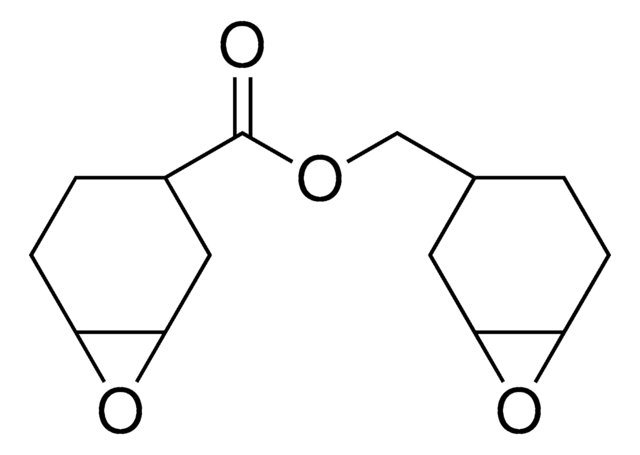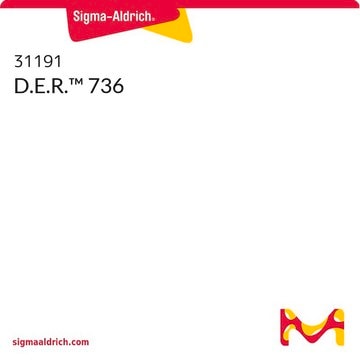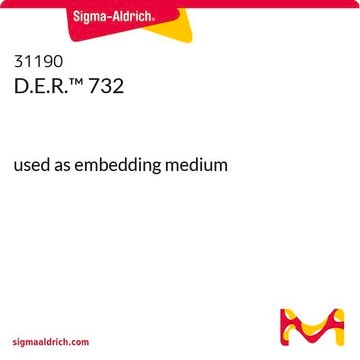D3415
Bisphenol A diglycidyl ether
viscous liquid, PPARγ inhibitor
Sinónimos:
BADGE, DGEBA, NSC 5022, 2,2-Bis[4-(glycidyloxy)phenyl]propane, 4,4′-Isopropylidenediphenol diglycidyl ether, D.E.R.™ 332
About This Item
Productos recomendados
product name
Bisphenol A diglycidyl ether,
form
viscous liquid
Quality Level
composition
Epoxide equivalent weight, 172-176
density
1.16 g/mL at 25 °C (lit.)
SMILES string
CC(C)(c1ccc(OCC2CO2)cc1)c3ccc(OCC4CO4)cc3
InChI
1S/C21H24O4/c1-21(2,15-3-7-17(8-4-15)22-11-19-13-24-19)16-5-9-18(10-6-16)23-12-20-14-25-20/h3-10,19-20H,11-14H2,1-2H3
InChI key
LCFVJGUPQDGYKZ-UHFFFAOYSA-N
¿Está buscando productos similares? Visita Guía de comparación de productos
General description
Application
- to study its effects on propiomelanocortin (POMC):enhanced green fluorescent protein (EGFP) expression in our transgenic fish
- to study the curing behavior, kinetics of epoxy, polyamidoamine systems and the influence of the incorporation of Fe3O4 magnetic nanoparticles (MNPs)
- as a thermosetting resin
- to determine the optimum composition of the epoxy-polysiloxane blend
- for the preparation of transparent epoxy-based nanocomposite coatings
- for the preparation, coating and curing of epoxy-graphene (E/G)
Biochem/physiol Actions
Features and Benefits
Linkage
Legal Information
signalword
Warning
hcodes
Hazard Classifications
Aquatic Chronic 2 - Eye Irrit. 2 - Skin Irrit. 2 - Skin Sens. 1
Storage Class
10 - Combustible liquids
wgk_germany
WGK 2
flash_point_f
507.2 - 514.4 °F - closed cup
flash_point_c
264 - 268 °C - closed cup
ppe
Eyeshields, Faceshields, Gloves, type ABEK (EN14387) respirator filter
Certificados de análisis (COA)
Busque Certificados de análisis (COA) introduciendo el número de lote del producto. Los números de lote se encuentran en la etiqueta del producto después de las palabras «Lot» o «Batch»
¿Ya tiene este producto?
Encuentre la documentación para los productos que ha comprado recientemente en la Biblioteca de documentos.
Los clientes también vieron
Nuestro equipo de científicos tiene experiencia en todas las áreas de investigación: Ciencias de la vida, Ciencia de los materiales, Síntesis química, Cromatografía, Analítica y muchas otras.
Póngase en contacto con el Servicio técnico














